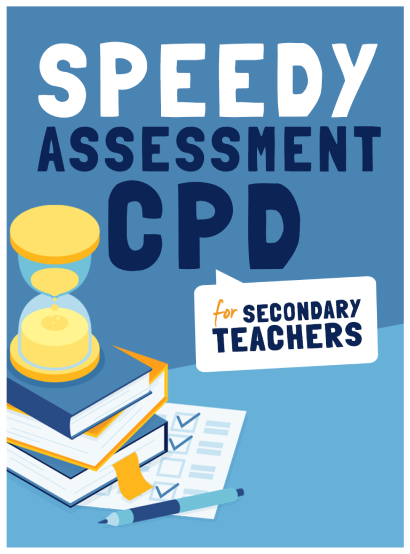Assessment – How to play the grading game

Telling the whole truth, and nothing but the truth, about pupil attainment, is not as straightforward as you might think, warns Becky Allen…

Many students sit end-of-year exams before Y11, but nowhere are the stakes quite so high as they are at Glenmoor and Winton academies, where learners are given their results in a little brown envelope, alongside their overall rank in year from which streamed classes are allocated.
Does the thought of telling a child they are ranked 174/180 make you shudder?
We don’t hand out this information as a rule, of course, because we are scared about how our students will react. Instead we comfort ourselves by providing ‘fuzzy’ attainment data to parents and their children.
We tell them they are a ‘Grade B’, but not whether or not this is top or bottom of the class. We tell them they achieved 68% in their exam, without informing them as to whether they are better than average.
However, experiments that do hand out clear information about exactly how well a student did in relation to their peers often show that attainment rises overall as a result.
In our place
The grading game that Glenmoor and Winton academies have created recognises the challenges schools face in trying to persuade students to spend time on their game – the game of getting good grades at maths or French – rather than the other games of life – being popular, playing sport, pursuing new relationships, and so on.
Creating a game where students are induced to work harder to climb up the bell curve of achievement is potentially so powerful because we care a great deal about our place in social hierarchies.
Biological research shows that high rank is often associated with high concentrations of serotonin, a neurotransmitter in the brain that enhances feelings of well-being. What’s more, social comparisons are an indispensable part of bonding among adolescents.
However, exactly how we choose to play these games in life depends on the beliefs we hold about ourselves. We don’t always strive to be the best at everything because there are a fixed number of hours in the day (and in any case, it would be exhausting)!
If you have ever noticed a student taking their foot off the gas after receiving a better-than-expected test score then you are witnessing the very well-established human trait of prioritising self-esteem maintenance, ie keeping ourselves at the place in the hierarchy to which we have become accustomed!
Balanced belief
Feedback doesn’t just shape our beliefs about how attainment, it also shapes our beliefs about how possible it is for us to do well at the subject in the future.
It can, correctly or incorrectly, seriously impair our belief in the productivity of our effort – what Carol Dweck calls ‘learned helplessness’.
If you’ve come to believe that even a huge amount of effort can’t get you to a much better position on the bell curve, then it is understandable that you decide to jump off the grading game and focus your energies elsewhere.
Every teacher has to give some feedback on attainment and there is no risk-free or value-neutral approach to doing it.
Giving students kind and fuzzy feedback can sometimes be very unhelpful since we are often signalling that they have learnt enough for them to be satisfied with their current position in the class, when this is not in fact true.
And whilst giving clear, cohort-referenced feedback brings the game of doing well at school to the forefront of a student’s mind, focusing them on what they need to do to succeed, it also risks them opting out l if they come to believe that the effort needed for a small improvement in ranking isn’t worth it.
Only you can know whether you have created a school climate where you can keep all your students playing the grading game you create for them.
Becky Allen is chief analyst and co-founder of Teacher Tapp, the largest teacher survey in England, and is an Honorary Research Fellow at the University of Oxford.











